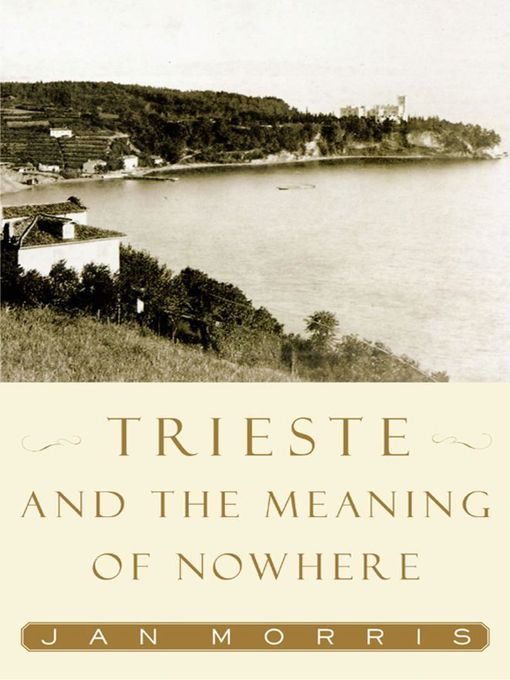
Trieste and the Meaning of Nowhere
کتاب های مرتبط
- اطلاعات
- نقد و بررسی
- دیدگاه کاربران
نقد و بررسی

August 20, 2001
With fluid, expressive prose, Welsh writer Morris (Lincoln) delivers an intriguing vision of the small seaside Italian city of Trieste. In an account that is part detailed history, part melancholy remembrance, Morris offers a vivid and loving description of a place and an eloquent reflection on growing old. In this slim volume, supposedly Morris's last, the author brilliantly weaves historic and personal memories (as the soldier James Morris, before her sex-change operation, she was stationed there during WWII), observations on love, lust, nationalism, exile and kindness, and a tender portrait of the oft-forgotten city. From glory to exile, from affluence to desertion, Morris shares the city's triumphs and hardships as one would the life story of an old and well-loved friend—with affection, respect and a cheerful acceptance of little personality quirks. Tossed between Italy, Austria, Yugoslavia and finally back to Italy, Trieste, once one of the greatest port cities in the world, is now a sleepy town on the "end of its Italian umbilical." Morris writes, "So it is with me, after a lifetime of describing the planet, and I look at Trieste now as I would look into a mirror.... Much of this little book, then, has been a self-description." Populated with the well-drawn ghosts of such luminaries as James Joyce, Sir Richard Francis Burton and other "exiles" who made the city their home for a time, Morris's "little book" is as exuberant as it is bittersweet, as resigned as it is wistful.

October 1, 2001
An opening quote from Wallace Stevens "I was the world in which I walked, and what I saw or heard or felt came not but from myself" sets the tone of this philosophical travel memoir. Morris, who has declared this book her last, is the author of more than 30 books (e.g., Last Letters from Hav), an honorary D. Litt. from the University of Wales, and a fellow of the Royal Society of Literature. In this love letter to Trieste a city she has grown to love over the years and never got tired of exploring Morris looks back on her life. She recalls first coming to Trieste as a soldier [male] in World War II and discusses the impact the city's way of life has had on her own philosophy of life. Each chapter begins with a philosophical quote stating its theme and setting the atmosphere. Morris is not only skilled at vividly describing townspeople and buildings in a way that brings Trieste to life, but she also successfully balances the personal with the historical by providing references to both history and literature. Intriguing and fun to read, this is recommended for public libraries. Stephanie Papa, Baltimore Cty. Circuit Court Law Lib., MD
Copyright 2001 Library Journal, LLC Used with permission.

Starred review from September 15, 2001
The highly regarded Welsh biographer and travel writer insists that this is her last book, which, if true, means that Morris is going out with a bang. In writing about the Italian city of Trieste, she shows to shimmering advantage her singular skill at evoking place. Morris visited and familiarized herself with Trieste several decades ago, and she remained haunted by it. What made her recent return trip there so particularly poignant was that Trieste's evident and deep-seated sense of the past corresponded with Morris' own personal sense of the passage of time: of "lost consequence and faded power." As she walks the streets of modern Trieste, her keen sense of history guides her. No matter where Morris perambulates in today's Trieste--no matter what modern structures loom before her--she is still most sensitive to the "imperial breezes" that sweep out of history from back when Trieste, then part of the Austrian empire, was transformed from a fishing town into Austria's only international seaport and the quarters of the imperial Austrian navy. Contemporary Trieste is a place of "uneasy" climate, a community seeking a new purpose, and a spot with a checkered sense of nationality. For Morris, it is also a city where, more so than any other place she's known, she "remembers lost times, lost chances, lost friends." Most important for her devoted readers, she articulates her feelings about it in sublime prose.(Reprinted with permission of Booklist, copyright 2001, American Library Association.)

























دیدگاه کاربران